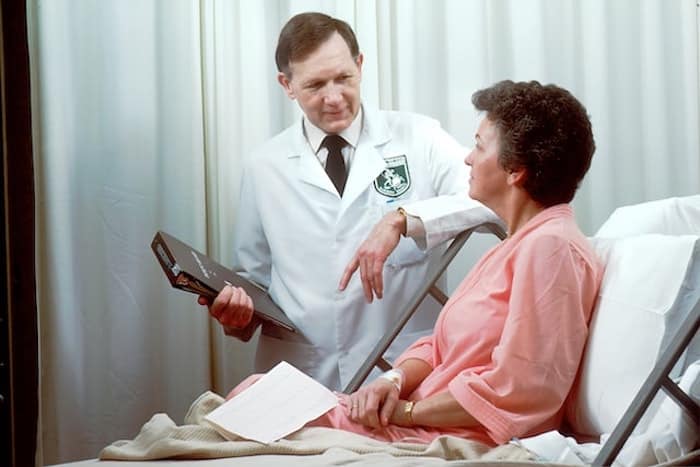Table of Contents
Good practice management is essential to running a successful medical practice.
Your practice can function more smoothly, successfully, and economically with the assistance of a qualified medical practice manager.
In this article, we’ll discuss 15 reasons you need a medical practice manager to help manage your practice and ensure success.
From helping to reduce operational costs to improving patient satisfaction, a medical practice manager can provide various benefits to your practice.
We’ll also discuss the qualifications and skills you should look for when hiring a practice manager.
Why do you need a medical practice manager?
A medical practice manager is a crucial member of a healthcare team. They are responsible for the overall management of a medical practice, which includes the financial, operational, and clinical aspects.
The practice’s current activities, including scheduling, paying, supervising the staff, and providing patient care, are their responsibility.
They ensure that the practice is run efficiently and effectively, making it easier for the practice to provide quality patient care.
In addition to ensuring the practice is adequately staffed, furnished, and equipped, they are in charge of ensuring it abides by all applicable laws and regulations.
They also oversee the practice’s budget and financials and help to create policies and procedures that promote quality care.

One of the critical components of medical practice management is billing software. This software helps streamline the billing process, ensuring accurate and timely payments.
It also reduces paperwork to free up office staff for other tasks and allows quick access to patient records.
With the help of billing software, medical practice managers can easily track payments and generate reports. Receivables management is consequently quicker and less expensive.
Building relationships with insurers, suppliers, and other organizations is another duty of the medical practice manager.
They help the practice stay up to date with the latest technologies and industry trends and can help to create a positive and productive working environment for the entire team.
Qualifications and skills required
- Proven experience in managing medical practices: Look for a Practice Manager with a proven track record of success in managing medical practices.
They should have a solid understanding of the current medical landscape, including up-to-date knowledge of healthcare regulations, billing procedures, and insurance contracts.
- Excellent communication skills: They will have strong communication skills and be able to interact effectively with staff, patients, and insurance companies.
The manager should be confident and articulate when communicating with others.
- Organizational skills: They are responsible for managing many aspects of a practice, so they should have excellent organizational skills.
They should be able to prioritize tasks, create workflows, and keep track of deadlines and important documents.

- Financial acumen: Practice Managers should have a good understanding of finances, including budgeting, revenue cycle management, and financial reporting.
The practice managers should be knowledgeable about the revenue cycle and how to maximize the practice’s income.
- Leadership skills: Practice Managers should have strong leadership skills and be able to manage staff and foster a positive work environment effectively.
They must be able to assign duties and motivate workers to accomplish their objectives.
- Technology proficiency: They should use healthcare-related software, such as electronic medical records systems and scheduling software.
The managers should also understand how to use technology to streamline processes and make the practice more efficient.
15 Reasons to Hire a Medical Practice Manager
Given below are 15 reasons to hire a medical practice manager:
1. Improved Financial Performance
A medical practice manager can help ensure your practice runs as efficiently and profitably as possible.
They can help you optimize the financial performance of your practice and manage all financial aspects, from billing and collections to cost containment.
2. Improved Patient Services
A medical practice manager can help you provide better patient services and experiences. They can create strategies to improve patient satisfaction, develop loyalty, and manage patient flow.
3. Improved Quality of Care
A medical practice manager can help ensure that your practice provides patients with the highest quality care.
They can assist you in creating standards for best practices and guarantee that your business complies with all relevant rules and legislation.

4. Improved Staff Management
A medical practice manager can help you manage and motivate your staff. They can ensure that your staff is adequately trained, up to date on the latest developments in the medical field, and working together to provide the best patient experience possible.
5. Improved Operational Efficiency
A medical practice manager can help you identify areas of potential operational improvement and develop strategies to maximize efficiency.
They can help you reduce costs, streamline processes, and ensure your practice runs as efficiently as possible.
6. Improved Communication
A medical practice manager can improve the interaction throughout your office. They can help you develop systems to ensure that information is shared effectively and quickly between the different departments of your practice.
7. Improved Marketing Strategies
A medical practice manager can help you develop marketing strategies to attract more patients and build your reputation.
They can help you create marketing plans, develop a website, and utilize social media platforms to reach a wider audience.
8. Improved Regulatory Compliance
A medical practice manager can ensure that your practice complies with all applicable laws and regulations.
They can help you stay updated on changes in the healthcare industry, ensure that you follow the proper procedures and protocols, and prevent potential violations.
9. Improved Patient Records
A medical practice manager can help create, maintain, and secure patient records. They can ensure that patient records are accurate, up-to-date, and secure.
10. Improved Revenue Cycle Management
A medical practice manager can help you manage your practice’s revenue cycle. They can help you optimize billing and collections, identify areas of improvement in the revenue cycle, and maximize revenue.
11. Improved Human Resources
A medical practice manager can help you manage the human resources of your practice. They can help you recruit and hire staff, manage employee relations, and ensure that your staff is confident.
12. Improved Time Management
You can better organize your time with the aid of a medical practice manager. They can help you develop systems for managing appointments, scheduling tasks, and ensuring that all tasks are done on time.
13. Improved Risk Management
A medical practice manager can help you manage the risk associated with your practice. They will be able to assist you in determining potential dangers and creating risk responses.
14. Improved Performance Appraisal
A medical practice manager can help you develop performance appraisal systems for your staff.
They can help you evaluate the performance of your staff and ensure that everyone is performing at the highest level.
15. Improved Business Strategy
A medical practice manager can help you develop and implement a business strategy for your practice.
They can help you create a long-term plan for success, identify growth opportunities, and ensure that your practice is well-positioned for the future.

Benefits of Hiring a Medical Practice Manager
Improved Efficiency: A Medical Practice Manager can provide a more efficient system for managing your practice.
They will create a streamlined process for patient care and help ensure that all tasks are completed on time.
- Increased Revenue: They can help optimize your practice’s revenue by ensuring that all billing and other financial processes are handled efficiently and that all payments are received promptly.
- Improved Patient Satisfaction: They can help ensure that your patients receive the best possible care by creating systems for patient satisfaction surveys and ensuring that all patient complaints are addressed promptly.
- Enhanced Quality of Care: They can help ensure that your patients receive the highest quality of care by monitoring patient care plans, evaluating the effectiveness of treatments, and ensuring that all staff members are adequately trained.
- Compliance with Laws and Regulations: They can help ensure that your practice complies with all relevant laws and regulations. By doing this, you can defend your business against any legal trouble and punishment.
- Budget Management: They can help to manage your practice’s budget to ensure that all necessary expenses are accounted for and that no funds are wasted.
- Risk Management: They can help to identify potential risks and create systems to help manage them. This helps ensure your practice is protected from potential legal and financial issues.
- Improved Staff Morale: They may contribute to fostering a supportive work atmosphere for your employees. This could raise spirits, increase output, and help attract and retain quality employees.
Conclusion
So, if you’re looking to take your practice to the next level, read on to discover why you need a medical practice manager.
The role of a medical practice manager is essential for any medical practice to succeed. From managing administrative tasks to helping physicians with patient care, practice managers are invaluable in streamlining the day-to-day operations of medical practice.
It can boost productivity, cut expenses associated with running the business, raise patient satisfaction levels, and ensure regulatory compliance.
With all these benefits, it is clear that having a medical practice manager is essential for any medical practice.


